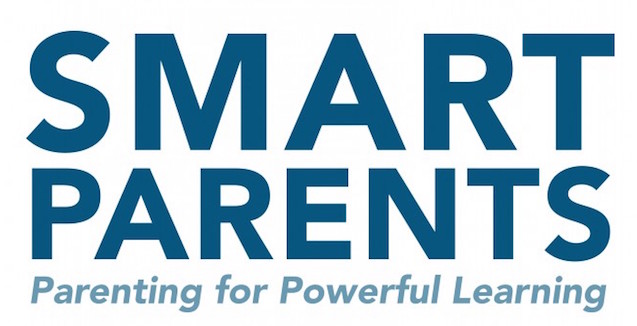I was honored to be asked to contribute to the new book, Smart Parents: Parenting for Powerful Learning. I wanted to share the challenge of finding the right educational opportunities for my kids and the uncertainty that comes along with being dissatisfied with what traditional education has to offer. And I also wanted to share the confusion and messiness of questioning that very dissatisfaction and questioning even more all the different approaches our family has used to address it. It’s hard to hear your own beat when the band is playing so loudly. It’s hard to risk alternative educational opportunities for your kids when your community is more than satisfied with the traditional. None of us want to get it wrong.
So I was blown away when I had the chance to read the final book. Not only did it articulate things that I didn’t know how to express, it painted a picture where our family is not alone in our struggle to provide more for our kids.
From the very beginning, the authors validated our concerns about traditional schooling being inadequate to prepare our kids for this new, rapidly changing, hyper-connected, radically transparent, demanding world.
“A generation ago, if your child was accepted into college, he or she could probably graduate and find a job in a relevant field. But these days, it’s not just about grades, SAT scores and college admissions; the level of young adult underemployment and debt suggests that the high school (or even college) diploma no longer guarantees a living wage. We know far too many students who have been able to navigate the system and call the value of school into question, even having already earned their degree. We’ve also known far too many students who suffer from lack of engagement and leave college with high debt—and no degree. In both cases, there seem to be missed opportunities with serious implications. “
To my delight, the book focuses strongly on how education now needs to respect and accommodate how every child is different – something any parent with more than one child is keenly aware of. Yet the expectation has always been to bend the child to fit the institution rather than the other way around.
Smart Parents speaks eloquently about what it looks like to have an educational environment that bends to the needs of each child with beautiful stories of parents who have advocated for their children’s unique needs as models and inspiration:
“Student-Centered Learning
– is personalized
– is competency-based
– happens anytime, anywhere
– encourages students to take ownership over their own learning”
Finally, I am impressed that the idea of student ownership runs deeply through the various threads of the book – it sits deeply in my heart. As a parent I’ve many times had to put my fears on the line to stand behind my beliefs that learning is more important than grades and ownership more important than compliance. When I read the stories in Smart Parents, not only do I feel more confident in that decision, but I take away concrete new approaches to supporting my children in developing agency, curiosity, and competence.
The messages in this book are powerful. It is hard to resist clichés like must-read. But as a long-time seeker of educational holy grails, I absolutely recommend this to all parents, grandparents, and anyone working to support kids’ learning inside school or out. Ok, it’s a must-read.


